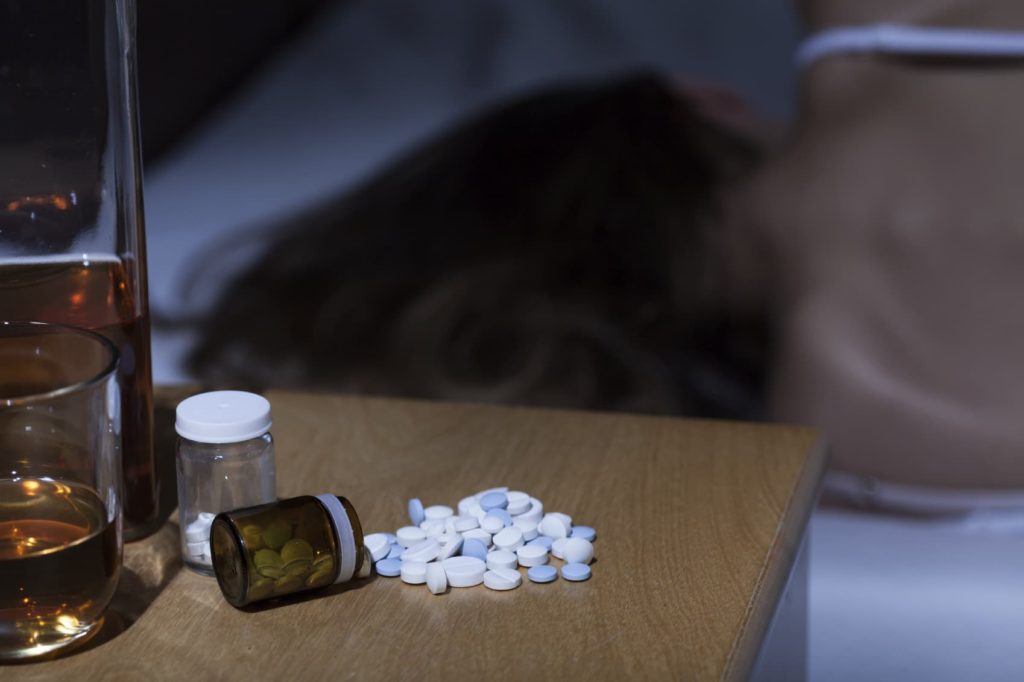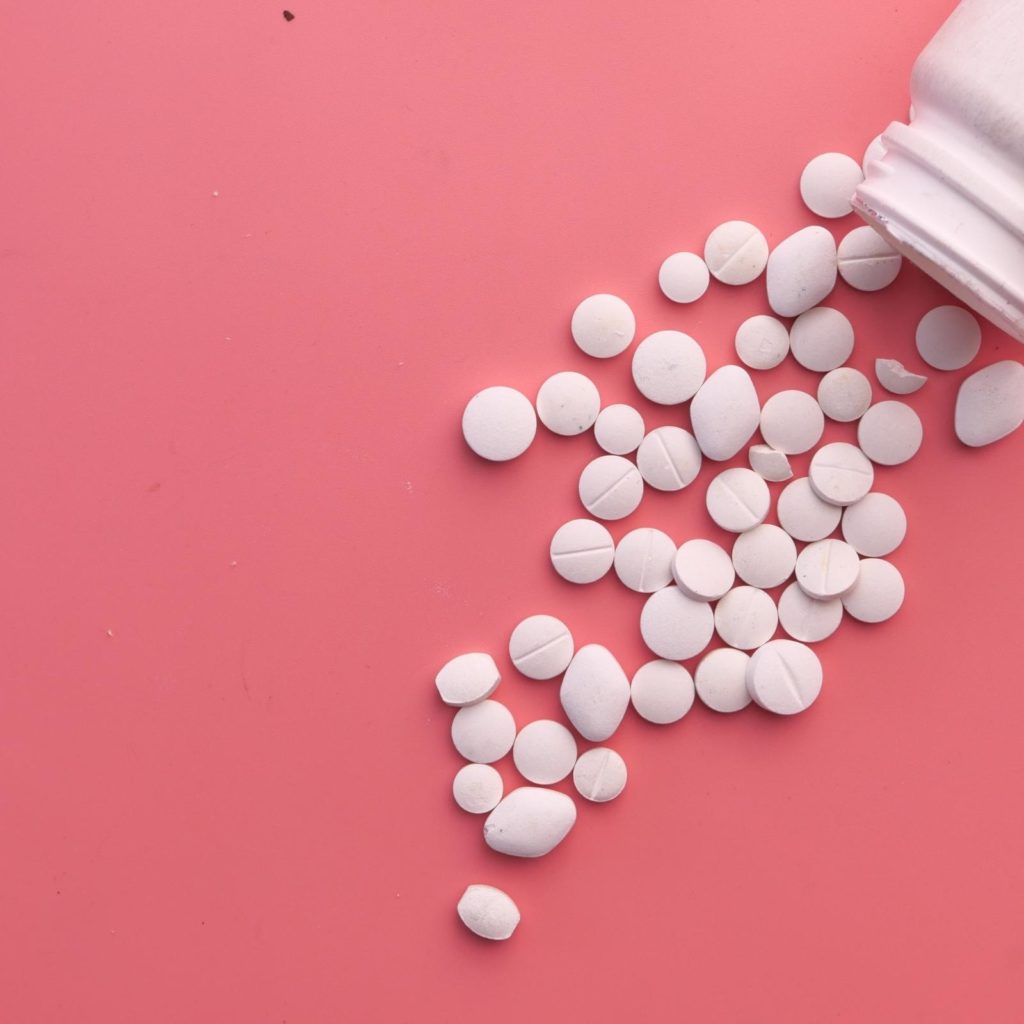What Is Suboxone?
Suboxone is the brand name for a prescription medication that is designed to treat opioid addiction. It’s typically used in the management of opioid abuse and withdrawal. Suboxone has two ingredients: the opioid Buprenorphine and the medication Naloxone. The combined effects of these two ingredients reduce cravings for addictive opioids such as Heroin, Codeine, Fentanyl, and Oxycodone. Suboxone, like any opiate, and many other medications, can be abused. For instance, some individuals buy Suboxone on the street in order to prolong their heroin use. If you or a loved one is addicted to Suboxone, seeking professional inpatient drug rehab will be an important step towards recovery in the safest way possible.
Suboxone is classified as a Schedule III controlled substance in the United States, meaning it’s a drug deemed to have a medical value yet also carries a moderate risk for addiction [1]. Therefore, only doctors who receive certifications from the Department of Health and Human Services may prescribe Suboxone. This medication is manufactured as dissolvable films and tablets. Suboxone and Methadone are both commonly used FDA-approved medications to treat opioid addiction. Many people who take this medication are concerned with how long Suboxone will stay in their system. It takes your body almost two full days to excrete 50% of the buprenorphine in a dose of Suboxone.
Skip to:
- What are the Long-Term Effects of Taking Suboxone?
- Does Suboxone Raise Your Blood Pressure?
- Can You Get Addicted to Suboxone?
- Suboxone Treatment
Learn More:
What is Buprenorphine?
Buprenorphine is one of the two main ingredients of Suboxone. According to the Substance Abuse and Mental health Service Administration (SAMHSA) [2], Buprenorphine is a medication approved by the Food and Drug Administration (FDA) to treat opioid use disorder (OUD) as part of medication-assisted treatment (MAT). As with all medications used in MAT, Buprenorphine should be prescribed as part of a comprehensive treatment plan that includes counseling and other behavioral therapies to provide a person struggling with opioid addiction with a whole-person approach.
Buprenorphine is what’s known as a partial opioid agonist—an opioid medication that produces relatively weak opioid effects. This means that buprenorphine reduces opioid withdrawal symptoms and cravings without producing the full effect of other opioids. Buprenorphine is a long-acting partial mu opiate agonist that acts on the receptor targets of heroin and morphine but does not produce the same intense “high” or dangerous side effects. These properties also make it a good potential treatment for addiction to opiate analgesics [3].
What is Naloxone?
Aside from Buprenorphine, Naloxone is also the main component of Suboxone. Naloxone is an FDA-approved medication that quickly counteract the effects of an opioid overdose. This medication is available in several formulations, including those intended for administration as a nasal spray (Kloxxado, Narcan) or an injectable solution. Naloxone is a safe medication and is not known to cause harm when administered in typical doses to opioid-naïve patients. Naloxone is known by the common brand name Narcan. The effects of Narcan (Naloxone) are rapid but not long-lasting. Naloxone is added to buprenorphine to reduce its abuse potential when injected.

Since Naloxone is an opioid antagonist, it blocks and reverses the effects of opioids in the nervous system. The purpose of Naloxone as an ingredient of Suboxone is to prevent people from overdosing on Buprenorphine. Naloxone also minimizes a person’s risk of relapse by preventing them from experiencing the addictive and euphoric sensations that opioids normally cause.

Get Your Life Back
Find Hope & Recovery. Get Safe Comfortable Detox, Addiction Rehab & Dual Diagnosis High-Quality Care.
Hotline(844) 597-1011What Are The Long-Term Side Effects of Suboxone?
Although long-term studies into the side effects of this prescription drug are still being developed, a few things are known. Some of the long-term side effects are known to mimic those of other opioid drugs, most likely because buprenorphine contains opiates.
Some of these side effects are:
- Chronic constipation
- Drowsiness
- Loss of pleasurable sensation under normal circumstances
- Decreased pain tolerance
- Dependence
- Cravings
These are the long-term effects that Suboxone and opioid drugs have in common. There are some long-term side effects reported that are exclusive to Suboxone.
Many users show what is known as a flat affect. This means they do not show or, possibly, feel emotion like those who are not on Suboxone treatment. They also showed a lack of emotional reactivity and seemed less emotionally aware. Some of the other side effects associated with long-term Suboxone use are:
- Anxiety
- Depression
- Lack of motivation
- Hair loss
- Fatigue
- Inability to regulate emotions
- Loss of feelings of sexual desire
It is unclear whether these symptoms are a byproduct of the original addiction or a long-term side effect of the Suboxone. Further study is necessary to determine the full extent of long-term Suboxone use.
Get Help. Get Better. Get Your Life Back.
Searching for Accredited Drug and Alcohol Rehab Centers Near You?
Even if you have failed previously and relapsed, or are in the middle of a difficult crisis, we stand ready to support you. Our trusted behavioral health specialists will not give up on you. When you feel ready or just want someone to speak to about therapy alternatives to change your life call us. Even if we cannot assist you, we will lead you to wherever you can get support. There is no obligation. Call our hotline today.
(844) 597-1011Does Suboxone Raise Your Blood Pressure?
High blood pressure is not listed as a common side effect of Suboxone (buprenorphine/naloxone), but low blood pressure sometimes is.
- Headache
- Constipation
- Nausea and vomiting
- Withdrawal symptoms upon discontinuation
- Dizziness
- Drowsiness and fatigue
- Respiratory suppression
- Sweating
- Fever
- Dry mouth
- Generalized muscle aches and cramps
- Insomnia
- Blurred vision
- Tremors
- Dilated pupils
- Feelings of a skipped heartbeat
- Attentional problems
- Overdose if taken in excess or with other sedating medications
- Euphoria, misuse, addiction (possible, but lower than other opioids)
- Precipitated opioid withdrawal (if other opioids are present in the system)

Why did my blood pressure increase when I started Suboxone? Buprenorphine, the active component of Suboxone is an opioid agonist that activates the brain’s opioid receptors. It can also trigger opioid withdrawal if taken while there are other opioids present in the system, such as fentanyl, heroin, codeine, methadone, and oxycodone. Some opioids can last for days in the system. Blood pressure increases are commonly seen during withdrawal from opioids. If you experienced blood pressure increases when you started Suboxone, it would likely be short-lived. Always consult your provider before taking Suboxone, and take it only as prescribed.
Does Suboxone Cause Heart Problems?
No, Suboxone does not cause heart problems. This is not a common side effect of Suboxone. Patients with prior cardiac disease can safely take Suboxone. Less than one percent of patients have occasionally reported the feeling of heart palpitations with Suboxone. Heart palpitations are sensations that the heart is beating rapidly or going too fast. However, this is not a sign of any true damage to the heart. Opioid withdrawal and anxiety themselves can cause the sensation of palpitations.
First-class Facilities & Amenities
World-class High-Quality Addiction & Mental Health Rehabilitation Treatment
Rehab Centers TourRenowned Addiction Centers. Serene Private Facilities. Inpatient rehab programs vary.
Addiction Helpline(844) 597-1011Proven recovery success experience, backed by a Team w/ History of:
15+
Years of Unified Experience
100s
5-Star Reviews Across Our Centers
10K
Recovery Success Stories Across Our Network
- Low Patient to Therapist Ratio
- Onsite Medical Detox Center
- Comprehensive Dual-Diagnosis Treatment
- Complimentary Family & Alumni Programs
- Coaching, Recovery & Personal Development Events
Are There Any Other Precautions or Warnings For This Medication?
Suboxone is a valuable medication, but everyone has to use it responsibly. It is dangerous to abuse these prescription drugs by taking them too often, in excessively large doses, or without a prescription. It is a tragedy that a medication supposed to help end opioid addiction may also be addictive. Still, once someone overcomes dependence on Suboxone, they can reclaim their life from opioids.
Abuse Potential
Buprenorphine (the active drug in Suboxone) can be abused like other opioids, legal or illicit. Therefore, it should be prescribed and dispensed with appropriate precautions to minimize the risk of misuse, abuse, or diversion and ensure proper protection from theft, including in the home.
Respiratory Depression
Buprenorphine, particularly when taken by the IV route, combined with benzodiazepines or other central nervous systems (CNS) depressants (which include alcohol), has been linked with significant respiratory depression and death. Many, but not all, post-marketing reports regarding coma and death linked with the simultaneous use of Suboxone and benzodiazepines involved misuse by self-injection.
CNS Depression
A person receiving Suboxone in the presence of opioid painkillers (analgesics), general anesthetics, phenothiazines, benzodiazepines, other tranquilizers, hypnotics/sedatives, or other CNS depressants (including alcohol) may exhibit increased CNS depression. Therefore, consider a dose reduction of CNS depressants, Suboxone sublingual tablets, or both in situations of simultaneous prescription.
Dependence
Buprenorphine is a partial agonist at the mu-opioid receptor, and chronic intake may produce physical dependence characterized by withdrawal signs and symptoms upon sudden discontinuation or rapid taper. The withdrawal syndrome is typically milder than seen with full agonists and may be delayed in onset. As mentioned above Suboxone can be abused like other opioids. This should be considered when prescribing or dispensing Suboxone when the clinician is concerned about an increased risk of misuse, abuse, or addiction.
Unintentional Pediatric Exposure
Buprenorphine can cause severe, possibly life-threatening, respiratory depression in children who are accidentally exposed to it. Therefore, store buprenorphine-containing medications such as Suboxone safely out of the sight and reach of children and destroy any unused medication appropriately.
Hepatitis, Hepatic Events
Cases of hepatitis with jaundice and cytolytic hepatitis have been observed in people receiving buprenorphine in clinical trials and post-marketing adverse event reports. The range of abnormalities starts from transient asymptomatic elevations in hepatic transaminases to case reports of death, hepatic failure, hepatorenal syndrome, hepatic necrosis, and hepatic encephalopathy.
In many cases, pre-existing liver enzyme abnormalities, infection with hepatitis B or hepatitis C virus, concomitant usage of other potentially hepatotoxic drugs, and ongoing injecting drug use may have played a contributory or causative role. In other cases, insufficient data were available to determine the etiology of the abnormality.
Withdrawal of buprenorphine has resulted in amelioration of acute hepatitis in some cases; however, in other cases no dose reduction was necessary. The possibility exists that buprenorphine had a causative or contributory role in the development of the hepatic abnormality in some cases. Liver function tests before initiation of treatment are recommended to establish a baseline.
Allergic Reactions
Cases of hypersensitivity to naloxone and buprenorphine-containing products have been reported in clinical trials and the post-marketing experience. Cases of angioneurotic edema, bronchospasm, and anaphylactic shock have been reported. The most common signs and symptoms include hives, rashes, and pruritus. A history of hypersensitivity to naloxone or buprenorphine is a contraindication to using Suboxone sublingual tablet.
Precipitation of Opioid Withdrawal Signs and Symptoms
Because it contains naloxone, Suboxone sublingual tablet is highly likely to produce intense and marked withdrawal signs and symptoms if misused by individuals dependent on full opioid agonists such as morphine, heroin, or methadone. In addition, due to the partial agonist properties of buprenorphine, Suboxone sublingual tablet may precipitate opioid withdrawal signs and symptoms in such individuals if administered sublingually before the agonist effects of the opioid have subsided.
Neonatal Withdrawal
Neonatal withdrawal has been reported in the infants of women treated with buprenorphine during pregnancy. From post-marketing reports, the time to onset of neonatal withdrawal signs ranged from day one to day eight of life, with most cases occurring on day one. Adverse effects linked with neonatal withdrawal syndrome included neonatal tremor, hypertonia, neonatal agitation, and myoclonus, and there have been reports of apnea, convulsions, respiratory depression, and bradycardia.
General Precautions
Suboxone can slow or stop your breathing and may be habit-forming. Misuse of this medicine can cause addiction, overdose, or death, especially in a child or other person using the medicine without a prescription. Use Suboxone precisely as prescribed by your doctor. Follow the directions on your prescription label and read all medication guides. Never use Suboxone in larger amounts or for longer than prescribed. Tell your doctor if you feel an increased urge to use more of this medicine.
Never share Suboxone with another person, especially someone with a history of drug abuse or addiction. misuse can cause addiction, overdose, or death. Keep the medicine in a place where others cannot get to it. Selling or giving away Suboxone is against the law.

World-class, Accredited, 5-Star Reviewed, Effective Addiction & Mental Health Programs. Complete Behavioral Health Inpatient Rehab, Detox plus Co-occuring Disorders Therapy.
CALL(844) 597-1011End the Addiction Pain. End the Emotional Rollercoaster. Get Your Life Back. Start Drug, Alcohol & Dual Diagnosis Mental Health Treatment Now. Get Free No-obligation Guidance by Substance Abuse Specialists Who Understand Addiction & Mental Health Recovery & Know How to Help.
Can You Get Addicted to Suboxone?
Drug traffickers have been selling illicit Suboxone to individuals throughout the United States. Most people who buy this drug illegally are not trying to experience an opioid high. Instead, they are trying to get relief from the uncomfortable symptoms of opioid withdrawal.
Someone could misuse Suboxone by using it to relieve opioid withdrawal symptoms without a prescription and without undergoing treatment for opioid use disorder. In such circumstances, a person might take Suboxone whenever they begin to undergo withdrawal symptoms, fail to abide by any medical boundaries, and suffer an overdose.
When someone fails to start treatment for opioid abuse and addiction and consumes Suboxone regularly to live without withdrawal symptoms, they become dependent on the medication and never overcome the disease. While it’s easier just to use Suboxone, recovery is the true long-term solution for withdrawal and addiction.
Suboxone is abused when the pills are crushed and snorted, or the film strips are dissolved and then injected. When someone injects Suboxone, they risk sharing dirty syringes and acquiring HIV or another blood-borne infection. Injecting Suboxone also causes a much more intense high than snorting the pills.
Suboxone film strips are easier for someone to hide or smuggle, increasing rates of abuse for the film strips. Investigators have also found that physicians who were sanctioned for prescribing more opioid painkillers than is legal were also prescribing too many Suboxone film strips. These physicians were fined, but unfortunately, the damage was already done in their communities.
Suboxone Addiction Treatment
Deciding to go into Suboxone detox on your own is a big risk. However, with support from a medical detox center, you enjoy the care and comfort of professionals who understand the recovery process. Also, you receive complete nutrition, hydration, and medications for your Suboxone detox withdrawal symptoms. Even more, an inpatient treatment program eases the process and improves your health simultaneously.

Upon entering a medically-assisted Suboxone detox facility, an assessment test and health review will take place to develop a proper treatment plan. For your best care, it’s important to provide correct details of your drug history, health, and other issues impacting your life. Most importantly, medically-assisted Suboxone detox improves your life, so it’s best to begin in an honest state for a full recovery.
Medically-assisted Suboxone detox may concern tapering you off the drug. A specialist may prescribe medications to ease your Suboxone detox withdrawal symptoms and make the procedure more comfortable for you. Addiction specialists tailor your withdrawal process to your personal needs so you feel as comfortable as possible from start to end.
Support received in supervised Suboxone detox is quite helpful and safe. Qualified addiction professionals help you understand what to expect, helping you through your symptoms. The support of an inpatient treatment program is something you won’t get if you detox at home.
Detox Treatment
The first step in treatment is medical detox. It will help you navigate the complicated withdrawal process but doesn’t address patterns of thought and behavior contributing to heroin abuse. Various treatment approaches and settings can help provide the ongoing support necessary to maintain long-term sobriety after you complete detox.
Cravings are very common during detox and can be challenging to overcome. This often leads to relapse. Constant medical care provided during inpatient treatment helps prevent relapse. Clinicians can provide necessary medication and medical expertise to lessen cravings and the effects of withdrawals.
Psychotherapy
Several different modalities of psychotherapy have been used in the treatment of depression, including:
- Cognitive Behavioral Therapy (CBT) – is an effective treatment that involves making changes in both the patterns of negative thoughts and the behavioral routines which are affecting the daily life of the depressed person for various forms of depression.
- Dialectical Behavior Therapy – is a comprehensive mental health and substance abuse treatment program whose ultimate goal is to aid patients in their efforts to build a life worth living. The main goal of DBT is to help a person develop what is referred to as a “clear mind.”
- Person-Centered Therapy – is a strategy that allows and encourages clients to understand and resolve their concerns in a safe, supportive environment.
Dual Diagnosis Treatment
Substance abuse and mental health disorders often co-occur. In many cases, traumatic experiences can result in a mental health disorder and substance abuse. Dual diagnosis programs treat both of these issues together. The best approach for the treatment of dual diagnosis is an integrated system. This strategy treats both the substance abuse problem and the mental disorder simultaneously. Regardless of which diagnosis (mental health or substance abuse problem) came first, long-term recovery will depend largely on the treatment for both disorders done by the same team or provider.
Medication-Assisted Treatments
Medication-Assisted Treatments (MAT) for substance use disorders and mental health disorders are commonly used in conjunction with one another. This includes the use of medications and other medical procedures. During your rehab, the staff from your treatment facility will help you identify what caused your addiction and teach you skills that will help you change your behavior patterns and challenge the negative thoughts that led to your addiction. Sometimes, the pressures and problems in your life lead you to rely on substances to help you forget about them momentarily.
Does suboxone raise your blood pressure? No, but there are other precautions or warnings for these medications. Now that we learned about the signs and symptoms of suboxone addiction, hopefully, this will give you an idea of what drugs you’re dealing with. If you or your loved one is addicted to suboxone, or suffering from opioid withdrawal symptoms, and at some point experienced opioid overdose symptoms, indeed, help is just a phone call away.
Professional opioid addiction treatment is necessary for fast and effective recovery. Contact us today at We Level Up treatment facility. We provide utmost care with doctors and medical staff available 24/7 for life-changing and lasting recovery. We offer an enhanced opportunity to return to a fulfilling and productive life.

Experience Transformative Recovery at We Level Up Treatment Centers.
See our authentic success stories. Get inspired. Get the help you deserve.
Start a New Life
Begin with a free call to an addiction & behavioral health treatment advisor. Learn more about our dual-diagnosis programs. The We Level Up Treatment Center Network delivers recovery programs that vary by each treatment facility. Call to learn more.
- Personalized Care
- Caring Accountable Staff
- World-class Amenities
- Licensed & Accredited
- Renowned w/ 100s 5-Star Reviews
We’ll Call You
Sources
[1] DEA – https://www.deadiversion.usdoj.gov/schedules/
[2] SAMHSA – https://www.samhsa.gov/medication-assisted-treatment/medications-counseling-related-conditions/buprenorphine
[3] NIDA – https://archives.drugabuse.gov/buprenorphine
[4] NCBI – https://www.ncbi.nlm.nih.gov/books/NBK459126/
[5] Suboxone Detox – We Level Up NJ


